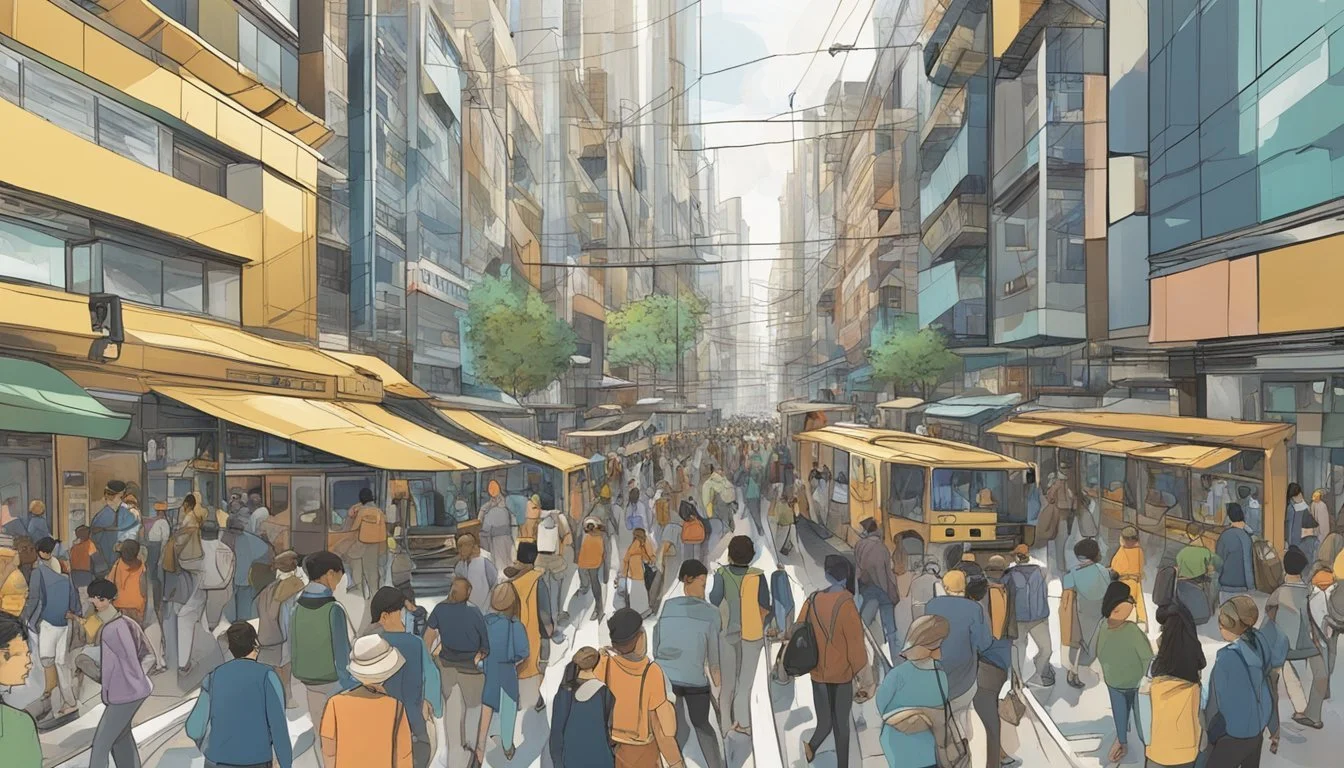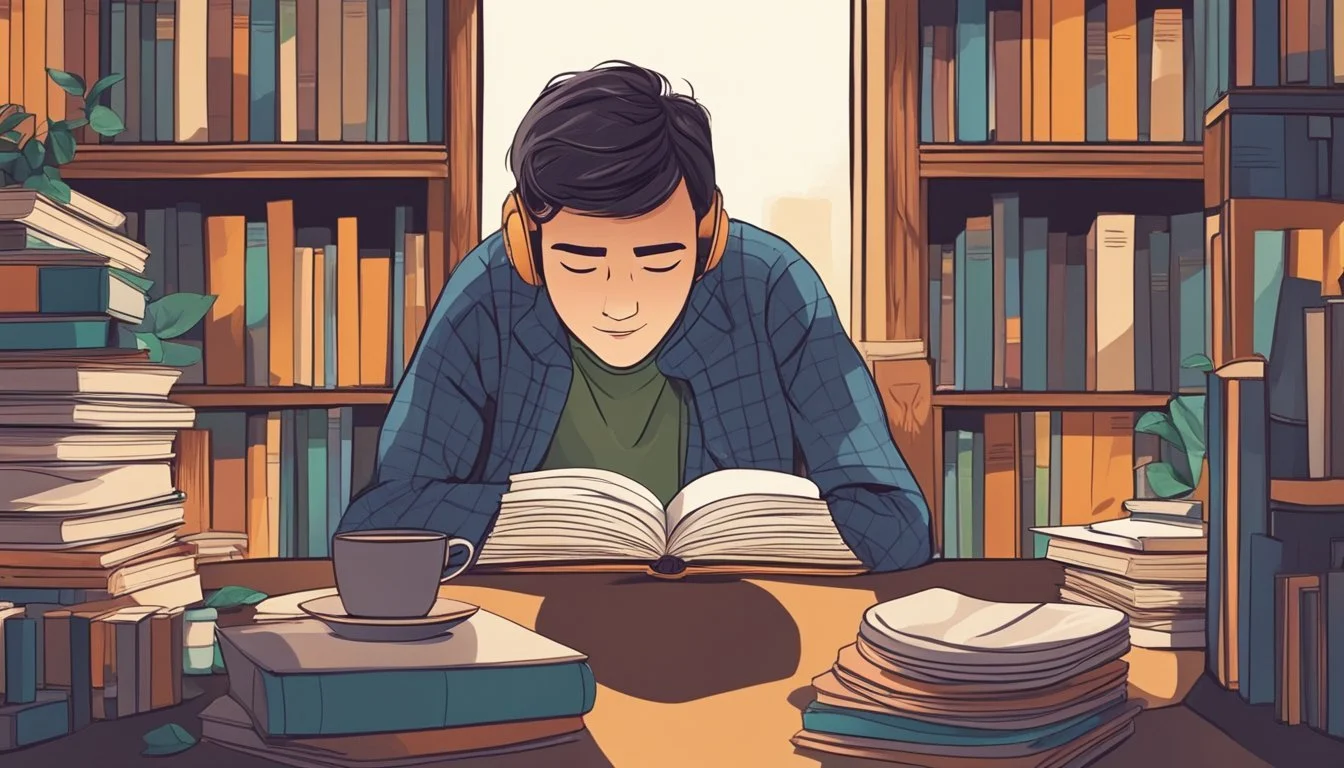13 Ways to Explain Your Introversion to Extroverted Friends
Bridging the Social Gap
Introversion and extroversion represent two distinct personality types that shape how individuals interact with the world around them. While extroverts thrive on social interaction and external stimulation, introverts often find solace in quieter, more introspective pursuits. This fundamental difference can sometimes lead to misunderstandings between introverted and extroverted friends.
Explaining introversion to extroverted friends can help bridge the gap and foster deeper understanding in relationships. By sharing insights into their unique needs and preferences, introverts can help their extroverted companions grasp why they may require more alone time or feel drained after prolonged social interactions. This article explores various approaches introverts can use to communicate their personality traits effectively to their extroverted friends.
1) I need alone time to recharge
Introverts require periods of solitude to replenish their energy. Unlike extroverts who gain energy from social interactions, introverts find social situations draining.
Spending time alone allows introverts to process thoughts and emotions. It provides a mental reset, helping them feel refreshed and recharged.
This alone time can take many forms. Reading a book, taking a walk in nature, or engaging in a solitary hobby are common ways introverts recharge.
The amount of alone time needed varies for each individual. Some introverts may require just a short break, while others need extended periods of solitude.
Extroverted friends can support their introverted companions by respecting this need for solitude. Understanding that it's not personal, but a necessary part of an introvert's well-being, can strengthen friendships.
Introverts often emerge from their alone time feeling more energized and ready to engage socially. This balance between solitude and social interaction is key to their emotional and mental health.
2) I'm not shy, just thoughtful
Introverts often find themselves labeled as shy, but this misconception can be addressed by explaining the thoughtful nature of introversion. Introverts tend to process information internally before responding, which may appear as hesitation to others.
This reflective approach allows introverts to consider multiple perspectives and formulate well-rounded responses. They prefer to think before speaking, ensuring their words carry weight and meaning.
Introverts may take longer to warm up in social situations, not due to shyness, but because they're observing and analyzing their surroundings. This thoughtful behavior helps them navigate social interactions more effectively.
By explaining these traits, introverts can help extroverted friends understand that their quieter demeanor stems from a preference for deeper, more meaningful interactions rather than social anxiety or timidity.
3) I prefer smaller gatherings
Introverts often feel more comfortable in intimate social settings. They typically enjoy deeper conversations with a select few rather than mingling in large crowds.
Small gatherings allow introverts to engage meaningfully without feeling overwhelmed. These settings provide opportunities for genuine connections and thoughtful discussions.
Extroverted friends may not realize that their introverted companions thrive in cozy environments. Explaining this preference can help them understand why large parties might be draining.
Introverts can suggest alternative activities like coffee dates or dinner with a few close friends. These options offer a balance between socializing and maintaining energy levels.
By communicating this preference, introverts can help extroverts plan more suitable get-togethers. This fosters mutual understanding and ensures enjoyable experiences for both personality types.
4) "It's not you, it's me" - Unknown
This phrase extends beyond breakup scenarios and serves as a valuable tool for introverts to communicate their needs. When an introvert uses this expression, they're signaling a desire for space or solitude.
Introverts employ this phrase to convey that their need for alone time isn't due to any fault of the other person. It's simply a reflection of their own internal requirements for recharging and maintaining emotional balance.
By using "It's not you, it's me," introverts can gently set boundaries without causing offense. This approach helps preserve relationships while still honoring their own needs for solitude and quiet reflection.
Extroverted friends might initially misinterpret this phrase as rejection. However, with clear communication, they can come to understand it as a normal part of their introverted friend's self-care routine.
Introverts can follow up this statement by explaining their need for alone time and reassuring their friends that it doesn't diminish their appreciation for the relationship. This honesty fosters understanding and strengthens bonds between introverts and extroverts.
5) I value deep conversations
Introverts often prioritize meaningful discussions over small talk. They tend to seek out conversations that explore complex ideas, emotions, or personal experiences.
For extroverted friends, explaining this preference can help them understand why introverts may seem quiet in group settings. Introverts typically engage more fully when topics go beyond surface-level chitchat.
These deeper conversations allow introverts to connect with others on a more profound level. They appreciate the opportunity to share thoughts and feelings that aren't always expressed in casual interactions.
Extroverts can support their introverted friends by initiating more substantial discussions. This might involve asking open-ended questions about personal interests, beliefs, or aspirations.
By recognizing the value introverts place on depth over breadth in social interactions, extroverts can foster stronger connections with their introverted companions. This mutual understanding can lead to more fulfilling friendships for both parties.
6) Social events can be draining
Introverts often find social events more mentally and emotionally taxing than their extroverted counterparts. This difference stems from how their brains process social stimulation.
For introverts, large gatherings or extended periods of social interaction can quickly deplete their energy reserves. They may feel overwhelmed by the constant input of conversations, noise, and activity.
This sensation of being drained is not simply a matter of preference, but a physiological response. Introverts' brains tend to be more sensitive to external stimuli, requiring more mental energy to process social information.
As a result, introverts may need frequent breaks or periods of solitude to recharge during or after social events. This need for alone time is not a reflection of dislike for socializing, but rather a necessary step to maintain their well-being.
Understanding this aspect of introversion can help extroverted friends recognize why their introverted companions may seem tired or withdrawn in social settings. It emphasizes the importance of respecting an introvert's need for quieter moments and space.
7) I enjoy one-on-one interactions
Introverts often thrive in one-on-one conversations. These intimate settings allow them to engage more deeply and authentically with others.
In smaller interactions, introverts can focus their energy on a single person. This enables them to listen attentively and respond thoughtfully without feeling overwhelmed.
One-on-one interactions provide a comfortable space for introverts to express themselves fully. They can share ideas, ask questions, and explore topics in greater depth.
For many introverts, these personal exchanges feel more meaningful and rewarding than large group conversations. They appreciate the opportunity to form genuine connections without the pressure of competing voices.
Explaining this preference to extroverted friends can help them understand why introverts may seem quieter in group settings. It's not that introverts dislike socializing - they simply prefer more focused interactions.
8) Crowds make me anxious
Introverts often experience heightened anxiety in crowded environments. This reaction stems from their heightened sensitivity to external stimuli and social interactions.
Large groups of people can overwhelm an introvert's senses, leading to feelings of discomfort and unease. The noise, movement, and energy of crowds can be mentally and emotionally taxing for them.
Introverts may find it challenging to focus or communicate effectively in crowded spaces. They might struggle to hear conversations or feel pressured by the close proximity of others.
For many introverts, avoiding crowds or limiting exposure to them is a practical way to manage their anxiety. When necessary, they may employ coping strategies such as taking breaks in quieter areas or using relaxation techniques.
Understanding this aspect of introversion can help extroverted friends be more empathetic. They can support their introverted companions by choosing less crowded venues or respecting their need for space in busy environments.
9) "Introverts live internally" - Unknown
Introverts often experience a rich inner world that may not be immediately apparent to others. Their thoughts, feelings, and ideas constantly swirl within, creating a vibrant internal landscape.
This internal focus allows introverts to process information deeply and thoroughly. They tend to reflect on experiences and concepts before reaching conclusions or taking action.
Introverts may find themselves lost in thought, exploring ideas or memories even in social situations. This can sometimes make them appear distant or distracted to more extroverted friends.
The internal life of an introvert serves as a source of energy and inspiration. It provides a space for creativity, problem-solving, and self-discovery.
While extroverts may seek stimulation from external sources, introverts often find fulfillment by tapping into their inner resources. This internal orientation shapes how they interact with the world around them.
Understanding this aspect of introversion can help extroverted friends appreciate the depth and complexity of their introverted companions' inner experiences.
10) I like to observe before participating
Introverts often prefer to take in their surroundings before actively engaging. This tendency to observe first allows them to gather information and process it internally.
By watching and listening, introverts can better understand the dynamics of a situation. They may assess the social cues, personalities, and expectations before deciding how to contribute.
This approach helps introverts feel more comfortable and prepared when they do choose to participate. It allows them to formulate thoughtful responses and ideas based on their observations.
Extroverted friends may interpret this initial quietness as disinterest or shyness. However, it's simply a different way of engaging with the environment.
Explaining this preference can help extroverts understand that introverts are still actively involved, even when not immediately speaking or acting. It's a valuable trait that often leads to insightful contributions once introverts feel ready to participate.
11) I need quiet spaces to think
Introverts often require peaceful environments to process information and formulate ideas effectively. This need for quiet spaces stems from their sensitivity to external stimuli and preference for internal reflection.
In bustling or noisy settings, introverts may struggle to concentrate and feel mentally drained. They typically perform best when given opportunities to think in calm, distraction-free areas.
Explaining this need to extroverted friends can help foster understanding. Introverts can emphasize that quiet spaces allow them to tap into their creativity and problem-solving abilities more efficiently.
By seeking out tranquil environments, introverts can recharge their mental energy and engage more fully in social interactions later. This balance between quiet time and social engagement is crucial for their well-being.
Extroverted friends can support their introverted companions by respecting their need for occasional solitude and helping to create quiet spaces when possible. This consideration can strengthen relationships and improve communication between different personality types.
12) I express myself better in writing
Many introverts find it easier to articulate their thoughts and feelings through written communication. This preference stems from their tendency to process information internally before expressing it.
Writing allows introverts the time and space to carefully consider their words and ideas. They can revise and refine their message without the pressure of immediate response that often comes with face-to-face interactions.
For introverts, written communication provides a comfortable medium to share complex thoughts or emotions. They can craft well-structured arguments or explanations without interruption.
Extroverted friends may not initially understand this preference. Explaining that writing enables clearer self-expression can help bridge the communication gap.
Introverts can suggest using text messages, emails, or handwritten notes as effective ways to communicate important information or feelings. This approach allows them to convey their thoughts more accurately and completely.
By acknowledging this trait, introverts can help their extroverted friends recognize and respect their preferred communication style. This understanding can lead to more effective and satisfying interactions between the two personality types.
13) I reflect before speaking
Introverts often take time to process information internally before expressing their thoughts. This reflective approach allows them to formulate well-considered responses.
Unlike extroverts who may think out loud, introverts prefer to gather their thoughts before sharing them. This pause for reflection can lead to more thoughtful and insightful contributions to conversations.
Explaining this tendency to extroverted friends can help them understand why an introvert might not immediately respond in a discussion. It's not a lack of engagement, but rather a different way of processing information.
Introverts may find it helpful to articulate this need for reflection to their extroverted friends. They can explain that this approach allows them to provide more meaningful input to conversations.
By understanding this aspect of introversion, extroverts can learn to appreciate the value of thoughtful silence in conversations. This can lead to more balanced and enriching exchanges between introverts and extroverts.
Understanding Introversion
Introversion is a personality trait characterized by a preference for quieter, less stimulating environments. It involves differences in how individuals process information and respond to social situations.
The Science Behind Introversion and Extroversion
Introversion and extroversion are rooted in neurological differences. Introverts have higher baseline levels of arousal in their brains, making them more sensitive to external stimuli.
This sensitivity leads to quicker overstimulation in social settings. Introverts often require solitude to recharge their mental energy.
Research shows introverts have more active frontal lobes, areas associated with internal processing and problem-solving. This contributes to their tendency for deeper reflection and analysis.
Extroverts, in contrast, have lower baseline arousal levels. They seek out more stimulation to reach optimal arousal states.
Key Differences Between Introverts and Extroverts
Introverts and extroverts differ in several key areas:
Social energy: Introverts lose energy in social situations, while extroverts gain it.
Processing style: Introverts prefer internal reflection, extroverts external processing.
Stimulation needs: Introverts thrive in low-stimulation environments, extroverts in high-stimulation ones.
Communication styles also vary. Introverts often prefer deeper, one-on-one conversations. Extroverts tend to enjoy broader social interactions and group activities.
Decision-making approaches differ too. Introverts typically take more time to consider options internally before acting. Extroverts may prefer to talk through decisions with others.
Communicating Your Needs Effectively
Effective communication is crucial for introverts to explain their needs to extroverted friends. Clear strategies and boundary-setting can help foster understanding and strengthen relationships.
Strategies for Clear Communication
Use "I" statements to express feelings and needs without placing blame. For example, say "I feel drained after social events and need alone time to recharge" rather than "You exhaust me with all your activities." Be specific about preferences and limitations. Explain that declining invitations isn't personal, but a necessity for mental well-being.
Offer alternatives that accommodate both introverted and extroverted needs. Suggest shorter hangouts or quieter activities. Educate friends on the introvert's energy cycle, emphasizing the need for solitude to maintain social energy.
Use analogies to illustrate introversion. Compare it to a battery that needs recharging or a muscle that requires rest after exertion. This can help extroverts relate to the introvert's experience.
Setting Boundaries with Friends
Establish clear limits on social interactions. Communicate preferred frequency and duration of get-togethers. Be firm but kind when declining invitations or leaving events early.
Create a signal or code phrase to indicate when social energy is depleting. This allows for a graceful exit without extensive explanations. Agree on respectful ways to check in during alone time.
Negotiate compromise activities that satisfy both introverted and extroverted needs. Plan quiet one-on-one time alongside group outings. Suggest parallel activities where friends can be together while engaging in separate tasks.
Regularly reassess and adjust boundaries as needed. Open dialogue ensures that both parties feel heard and respected.
Socializing Tips for Introverts
Introverts can thrive socially by finding environments that suit their preferences and balancing social interactions with alone time. These strategies allow introverts to engage meaningfully while respecting their need for solitude.
Finding Comfortable Social Settings
Introverts often feel most at ease in quiet, low-key environments. Small gatherings or one-on-one meetups provide opportunities for deeper conversations without overwhelming stimulation.
Coffee shops, bookstores, or nature walks offer relaxed settings for socializing. These places allow introverts to connect without the pressure of large crowds or loud noises.
Joining clubs or groups focused on shared interests can help introverts meet like-minded people. This approach provides built-in conversation topics and a sense of purpose for social interactions.
Online communities and social media platforms can serve as comfortable spaces for introverts to connect. These digital environments allow for controlled interaction and the ability to step away when needed.
Balancing Social Time and Alone Time
Introverts need to recognize their social energy limits and plan accordingly. Scheduling regular alone time helps recharge between social engagements.
Setting boundaries is crucial. Introverts should communicate their needs to friends and family, explaining when they need space or prefer shorter social interactions.
Planning social activities in advance gives introverts time to mentally prepare. This approach reduces anxiety and allows for better energy management.
Incorporating solo activities into social plans can provide brief respites. Taking short walks or offering to help with a task in another room offers moments of solitude during gatherings.
Practicing self-care after socializing helps introverts recover. Engaging in favorite solo activities or simply relaxing in a quiet space can restore energy levels.















